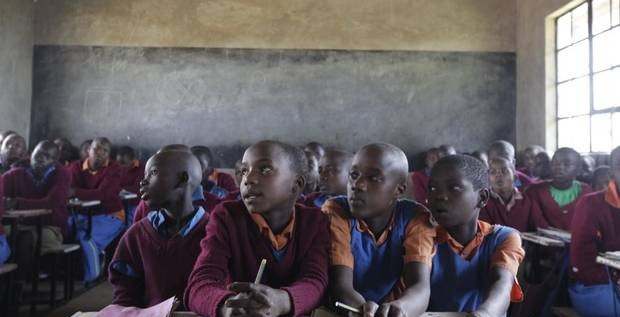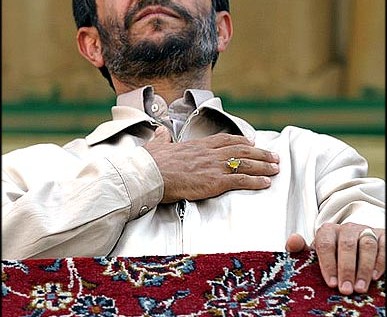Africa’s Next Challenge: Getting Fully Schooled

|
Grade 6 students cram into desks at Pimbiniet Primary School in Kenya’s Narok South district. (Josh O’Kane/The Globe and Mail)
|
NAROK SOUTH DISTRICT and NAIROBI, KENYA – At Pimbiniet Primary School, the textbooks are tattered. Students, three or four to a desk, tug the books back and forth, tearing pages as they try to get a glimpse of what they’re learning.
“They can really struggle,” says headmaster Thomas Maritim – though not for any lack of enthusiasm. They just all want the books for themselves. “It can lead to discipline cases where pupils may be fighting for the book.”
The classroom is cramped and the resources thin, but Pimbiniet is one of Free the Children’s 16 beneficiary schools in Kenya’s Narok South district in the Maasai Mara, dotted with farming communities and pastoral families. Yes, their textbooks are torn. No, it’s not always easy to pay all of the teachers. But thanks to their benefactor, the schools have new buildings, clean water, high girl enrolment, and students who aren’t going completely hungry.
Not all schools in sub-Saharan Africa can count themselves so lucky. Just four hours east of Pimbiniet, in the Kenyan capital of Nairobi, staff at the Raila Educational Centre has a harder time keeping students in class. The school is in Kibera, Africa’s largest slum, and teachers face often-insurmountable odds to keep classrooms full.
All students in the country have access to free primary education, but the realities of life in Kibera regularly subvert students’ chances to break the cycle of poverty. Teaching staff is thin; many young girls get pregnant and leave school, often before Grade 7; others leave school to earn money for their families; and the curriculum has been reduced to subjects that have formal examinations, creating barriers for students who might excel at arts or sports, but can’t cope with traditional rote learning.
Click Here to Read Full Story




